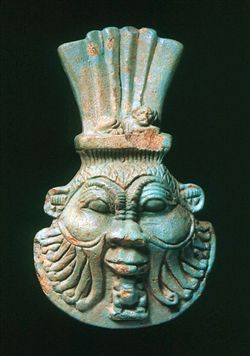
Ordinary Egyptians sought and found satisfaction for their everyday religious needs in personal piety, which existed alongside and to a large extent separately from the official temple cults. A personal relationship with the gods was a way to express their own feelings of gratitude and happiness on the one hand, and worries and sorrows on the other. The help of the gods was invoked for everyday emergencies: sickness and death, fertility and prosperity. Bes and Taweret were particularly popular with ordinary people, but personal devotion was also directed towards Amun of Thebes "who is on the side of the one who is wretched" and Ptah "on his wall". For the protection of their young children against all possible threats, mothers appealed to the goddess Isis who had successfully brought up her son Horus in a hostile environment. The god Harpocrates was called upon to heal snake bites and scorpion stings. The deified sage Imhotep, King Djoser's architect, was also worshipped as a healer. The Egyptians protected themselves against all possible dangers with amulets. The so-called ‘Ear stelae' and other votive offerings which can be found in various collections show that the Egyptians believed that their prayers for help and succour had really been heard. An important expression of personal piety took shape in the mortuary cult. The deceased were a part of society. The tombs were visited regularly to bring offerings to the deceased. Meals of which the dead were also considered to partake were prepared near the tombs as well.